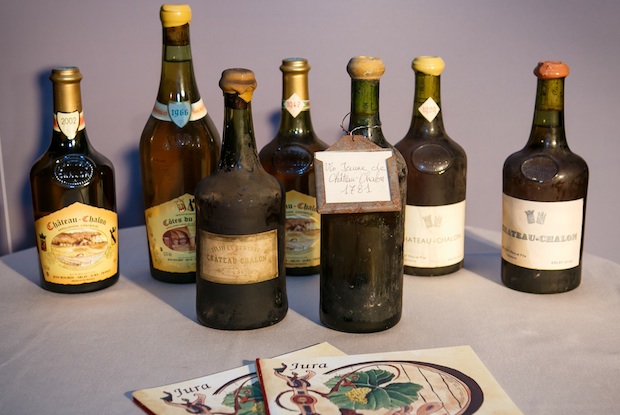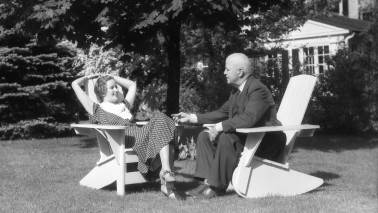Marcher country, the Jura lies to the east of Burgundy and the contrast is marked. Burgundy: the very name is redolent of opulence. The architecture, the courtliness, the great wines: the aristocratic civilisation of Burgundy is a dance to the cornucopia of nature. Among the rocks and hills and gorges of the Jura, nature is less generous: livelihoods harder wrought. But as so often in European history, adversity has been the nursery of triumph.
The Jura produces a famous wine, vin jaune. Until this week, I had hardly tasted it. That has now been rectified, in a spectacular manner. Those who try to write about wine often talk of terroir, minerality and tradition. With vin jaune, those are understatements. This is an old-fashioned wine, made as it was centuries ago: tasting as wines of earlier eras probably tasted, when preservation was the first priority.
Left to itself, wine will oxidise and deteriorate. Down the ages, vignerons have striven to prevent that happening. The Jurans found their solution. They allow a degree of oxidisation to occur while the wine is still in the barrel. Around 40 per cent of the wine evaporates during its first seven years, while it ferments under a yeast crust. The result: the longest-lived wine of all.
We started with an adolescent: the 1947. I might have guessed that it was ten or 12 years old. At first acquaintance, one could mistake it for a fino sherry. It is mouth-puckering: there is plenty of acid. Then the flavours fill out: nuts, subtlety, spices — and length. There is a tremendous nose, and the aftertaste goes on for ever. We moved on the 1929, and the vin jaune showed no signs of age.








Comments
Join the debate for just £1 a month
Be part of the conversation with other Spectator readers by getting your first three months for £3.
UNLOCK ACCESS Just £1 a monthAlready a subscriber? Log in